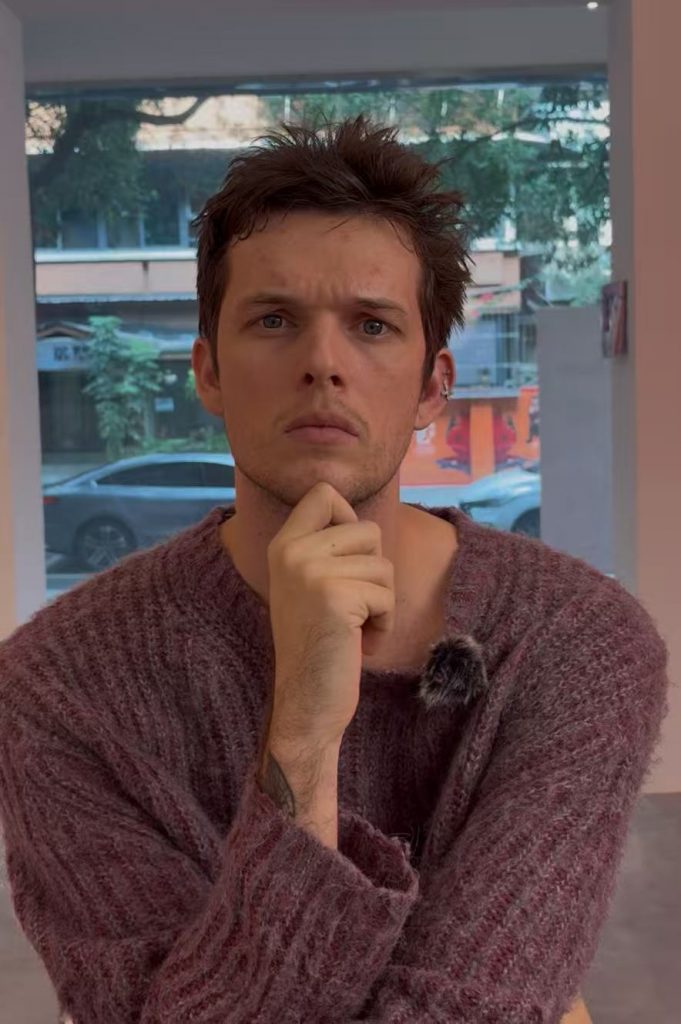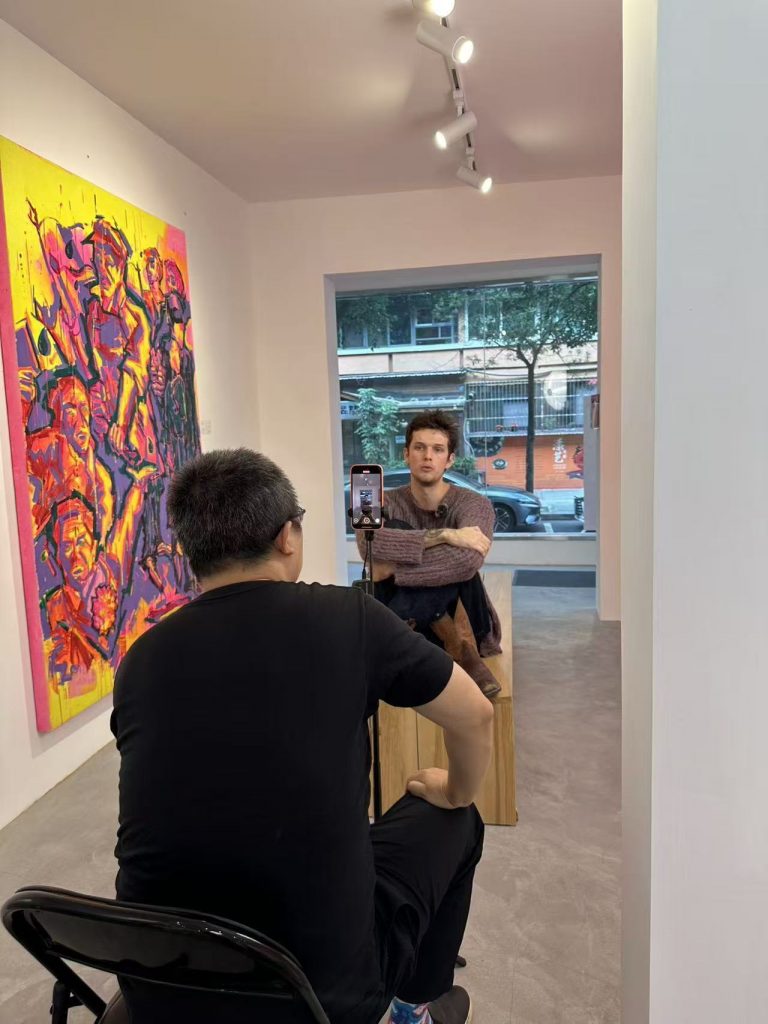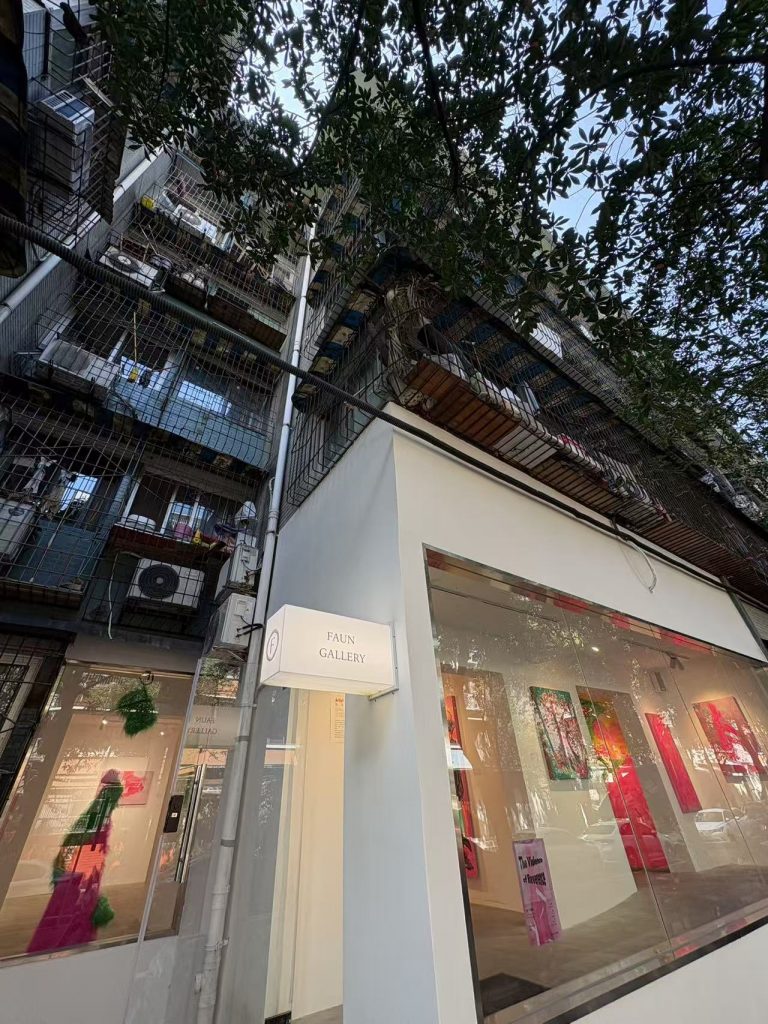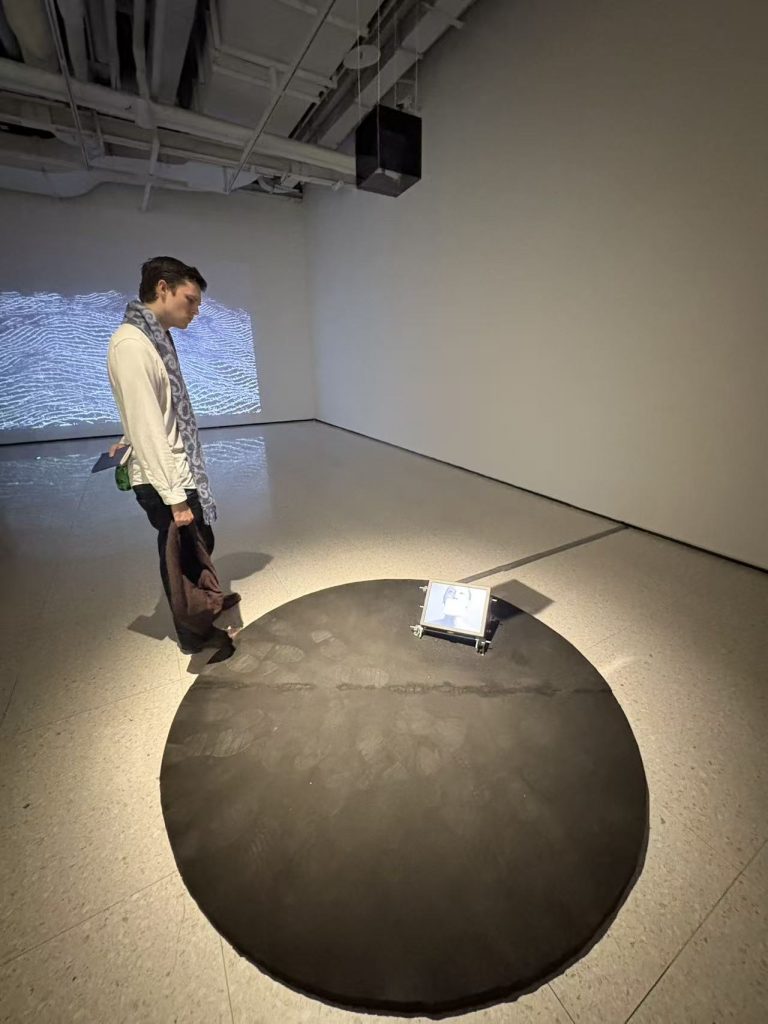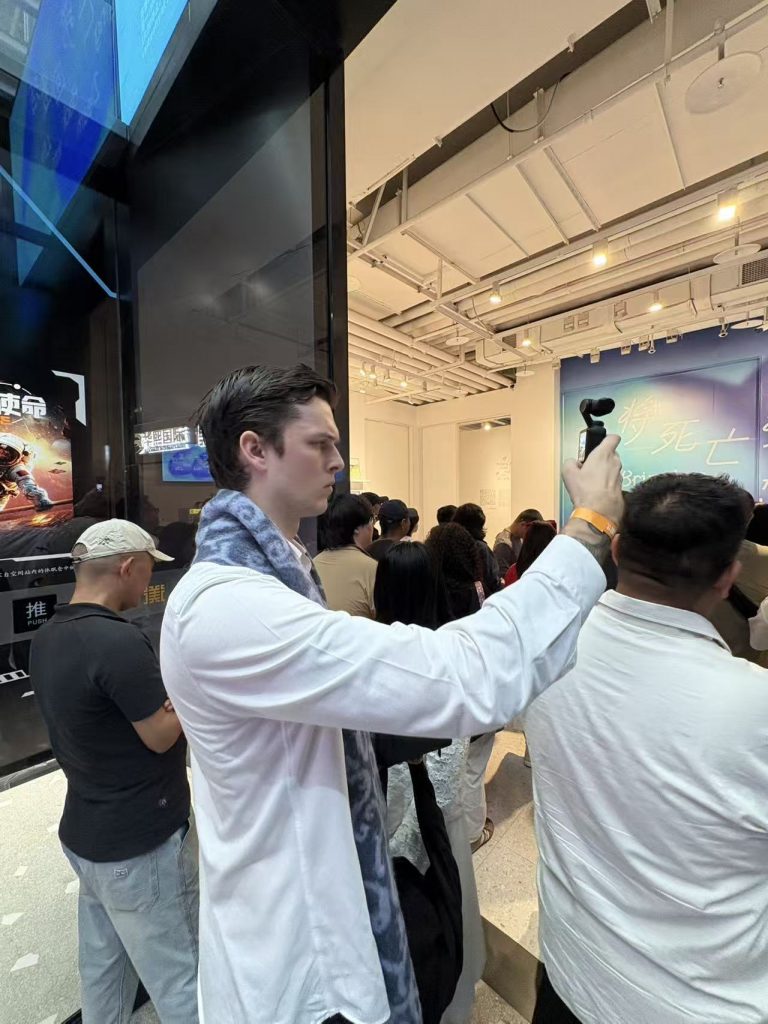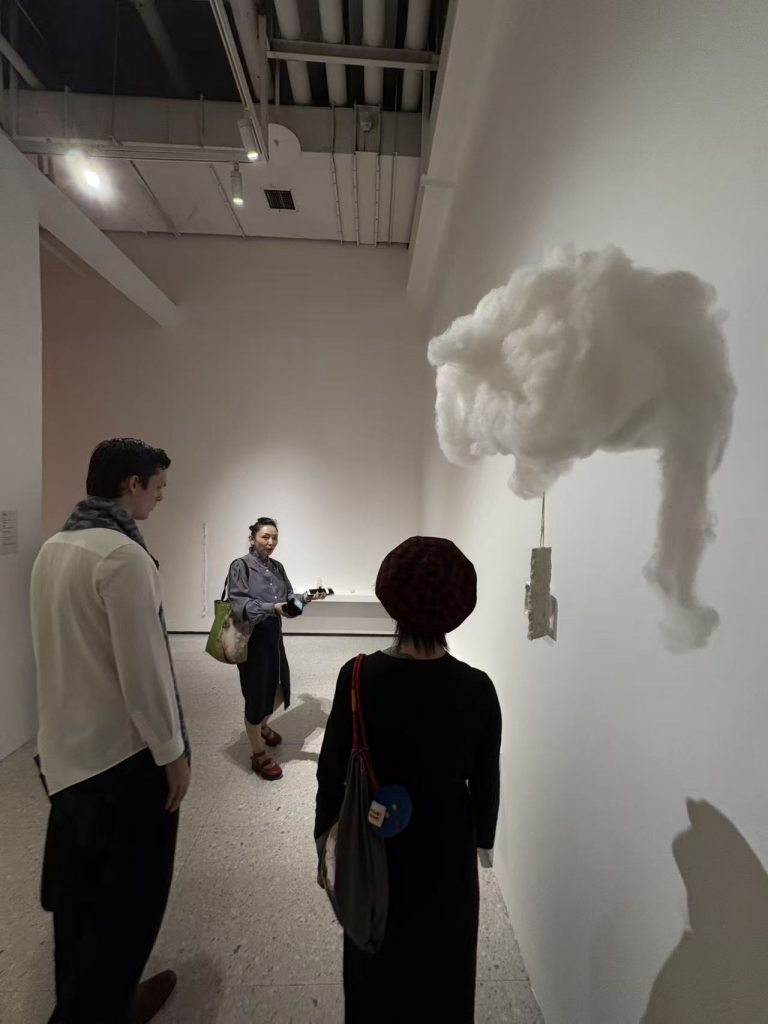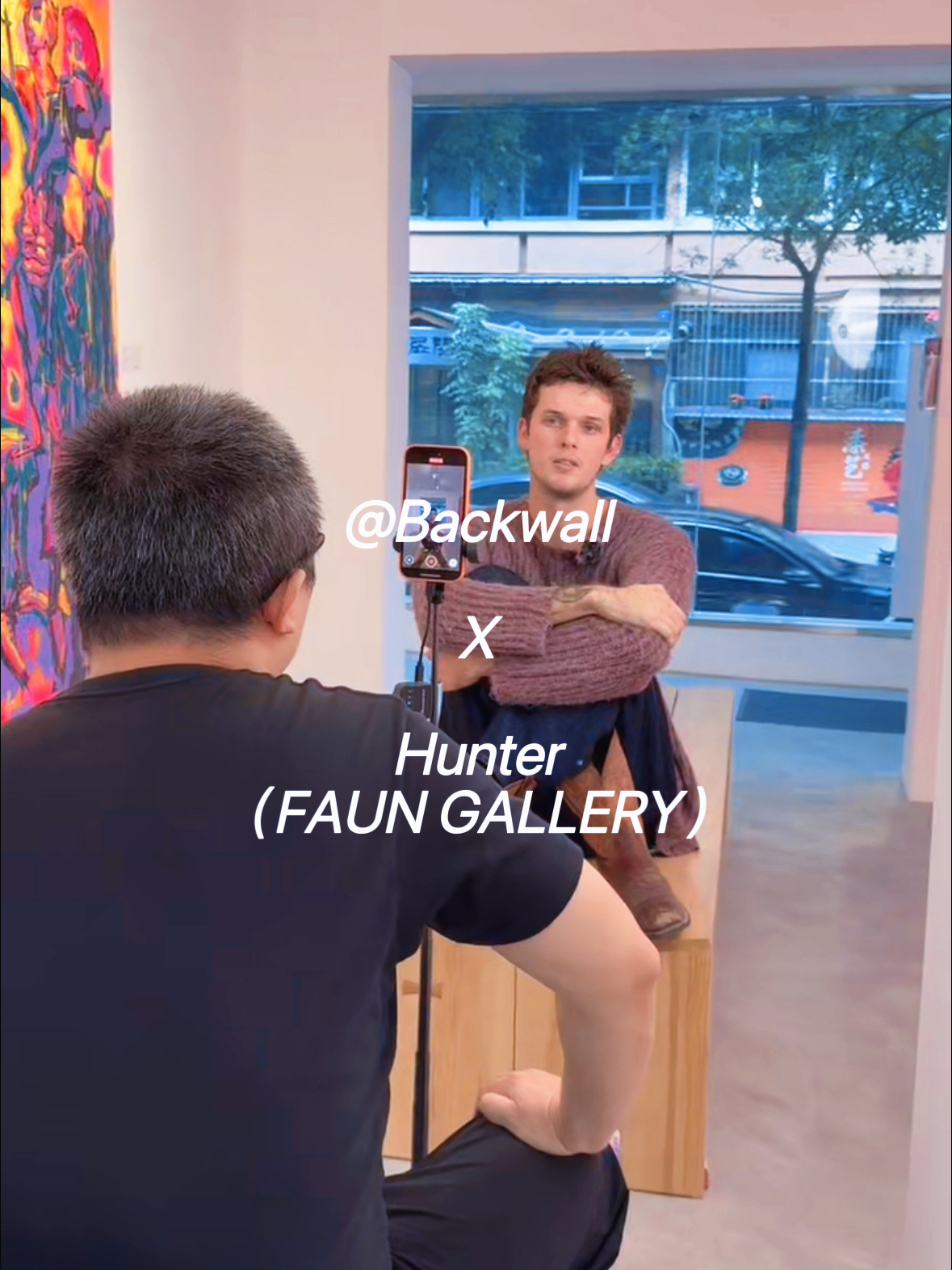Right in the heart of Chengdu, Hunter Charles’ FAUN Gallery quietly stands on an old street. Unlike the high-end galleries in commercial districts, there’s no glittering lights or champagne receptions here—only a sense of honesty and warmth.
Hunter, a gallery owner from Los Angeles, came to China with nothing but “a backpack and a dream.” His goal: to help more people in the West see the vitality and complexity of contemporary Chinese art.
⸻
Why He Came to China
Hunter recalls that his decision to come to China was partly instinct, partly ambition.
“China is the world’s second-largest economy, full of potential in both production and buying power. More importantly, I wanted to help talented Chinese artists—those who are underrecognized internationally—get the attention they deserve.”
But what made him stay was Chengdu itself.
“The city is full of color, culture, and calm. The rhythm of life here is gentle. The landscapes, the people, the food—it’s all alive. In the West, we’re often taught that China lacks freedom or creativity, but what I’ve seen in Chengdu is the total opposite. The artists here are incredibly smart and brave, always pushing the limits of expression.”
⸻
From Accountant to Gallerist
Before running a gallery, Hunter was an accountant—making good money but feeling completely empty.
“I thought I’d spend my whole life behind a computer until COVID hit. Working from home nearly broke me. One day I told my dad, ‘I can’t do this anymore.’”
So he took everything he’d learned about business and invested it into what he truly loved—art.
“I started my first gallery with my own savings. No investors, no backers. I just wanted to show good art, and let the work speak for itself.”
⸻
“The Art Industry Is a Scam”
Hunter doesn’t hold back when talking about the art world.
“The art industry, at its core, is a scam. Whether it’s art schools, auction houses, or major museums—they’re all driven by capital. Art has become a bar of gold traded among the rich, not an expression of the soul. I don’t hate money, but I hate hypocrisy.”
He adds,
“Too many art events are just social gatherings where people only care about swapping WeChat contacts or taking photos. Real conversations about art are becoming rare.”
⸻
Searching for ‘Real Art’ in Chengdu
FAUN Gallery sits across from People’s Park on an old street that Hunter calls “the real China.”
“I didn’t want to open in a luxury mall or a trendy district. I wanted a place with real life around it—grandparents, kids, food stalls. That’s where culture grows.”
He says the young artists he’s met here have deeply inspired him.
“They’re not trapped by systems or obsessed with fame. Their work is honest, emotional, and thoughtful. That’s what art should be.”
⸻
On ‘Guanxi’ and the Social Scene
Hunter also has strong opinions about relationship culture, or guanxi:
“Whether in China or America, the art world is tangled up in connections and power games. People care more about what you can offer than who you are.
I’m not here to please anyone—I’m here to break that cycle and bring art back to art.”
⸻
On Controversy and Public Judgment
Hunter has faced online criticism and personal attacks, but he remains calm about it.
“I’m not perfect, and I’ve never claimed to be. I’ve made mistakes, but I’ve grown from them. I don’t waste my time arguing online. My shows and my work speak for me.”
⸻
China and the West: Different Art Worlds
When it comes to comparing art markets, Hunter is clear:
“China’s art market is still shaping its own identity—it doesn’t need to copy the West.
China has its own cultural spirit. I just hope to see more support for everyday artists, not just the names that keep appearing in the elite system.”
⸻
Epilogue: The Sincerity of Art
At the end of the interview, Hunter spoke about his long-term commitment:
“I may never be Chinese, but I’ll give all my time and passion to show great art.
Even if one day FAUN no longer exists, I hope people remember that there was a foreigner in Chengdu who tried to show something real.”
Hunter smiled and added,
“Art shouldn’t be a bar of gold—it should be a mirror that reflects the human soul.”
